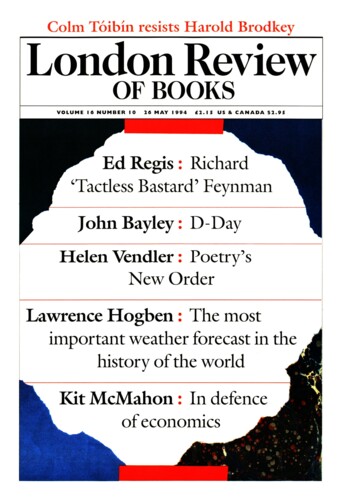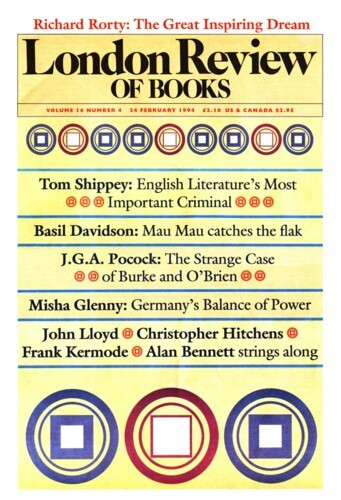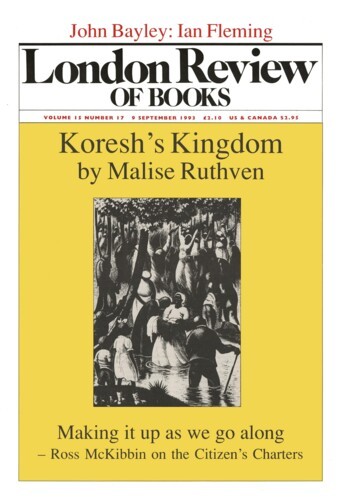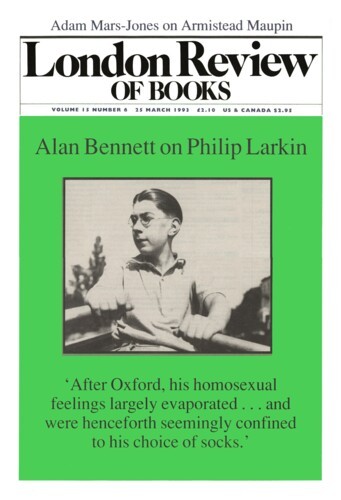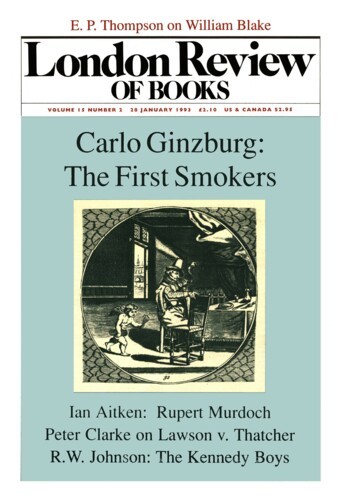Little Nips
Penelope Fitzgerald, 26 May 1994
The moment between the past and the future is brought home to Zhenya Usvatov, the prosperous First Deputy of the Theatre Workers’ Union, when he wakes in his well-appointed dacha and turns on his Japanese radio. Tchaikovsky’s Sixth at this time in the morning! On TV he sees a black-suited orchestra sawing away – but the first violinist has been dead for six months: he remembers signing the widow’s pension form. Presumably this was the only film they could lay hands on. The date is 10 November 1982. Brezhnev has died. Zhenya Usvatov groans. Usvatov’s new appointment has not been confirmed, ‘If only he could have hung on for another month.’ Five days later, at the state funeral, Andropov is observed to be the first to scatter a handful of earth. But nothing is certain. The future is still terrifyingly open to history.’
